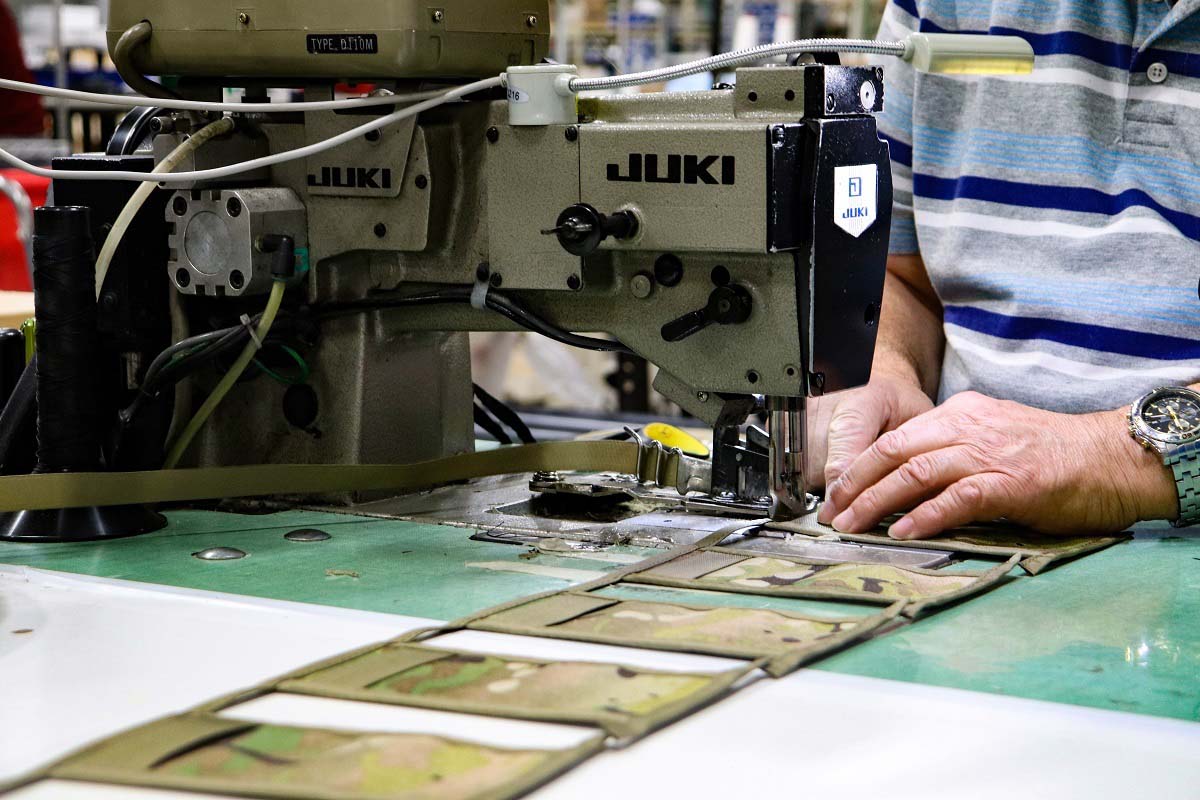The Benefits of Custom Manufacturing Equipment for Business
In the ever-evolving landscape of modern industry, businesses face a myriad of challenges, each requiring unique solutions for sustainable growth and success.
One pivotal aspect that significantly influences operational efficiency and competitive edge is the choice between off-the-shelf equipment and the bespoke advantages offered by custom manufacturing.
Custom manufacturing is a transformative approach, allowing businesses to design and create equipment precisely tailored to their specific needs and objectives.
Tailored Solutions
When you opt for custom manufacturing, you are not merely acquiring equipment but commissioning a solution meticulously crafted to mirror the intricacies of your business’s DNA.
The process begins with a comprehensive analysis of your needs, operational workflows, and future growth projections.
This granular understanding serves as the blueprint for the design phase, where every nuance of your requirements is considered.
Dimensions, functionalities, and even the minutest details are tailored to synchronize seamlessly with your existing processes.
The result is not just equipment; it’s a bespoke solution that becomes an integral part of your operational ecosystem.
For example, having a custom tactical backpack manufacturer for the military holds paramount importance due to its ability to tailor designs to specific operational needs.
Unlike off-the-shelf options, custom manufacturers can craft backpacks with meticulous attention to the unique requirements of military missions.
This ensures optimal functionality, integration with specialized equipment, and durability under rigorous conditions.
Boosted Efficiency
Increasing efficiency is a perpetual quest for businesses aiming to stay competitive and responsive to market demands, small run manufacturing plays a key role in this pursuit, offering flexibility and customization without the need for large-scale production.
Custom equipment manufacturing also emerges as a powerful catalyst, offering a tailored approach that transcends the constraints of one-size-fits-all solutions.
The promise of increased efficiency begins with the deliberate design of equipment that is finely tuned to optimize your workflow.
In essence, the focus on increased efficiency through custom manufacturing is not just about doing things faster; it’s about doing things smarter.
It’s about crafting a symbiotic relationship between your processes and your equipment, where each component contributes to your business’s overall efficiency and success.
Cost Savings
The upfront investment in custom manufacturing may present itself as a potential deterrent.
Still, it becomes a pivotal element in pursuing long-term cost efficiency when viewed through a strategic lens.
One of the primary contributors to long-term cost efficiency is the elimination of unnecessary features and functionalities.
Unlike off-the-shelf solutions that come laden with many generic features, custom-manufactured equipment is tailored to address your specific needs.
By streamlining the design to focus solely on the tasks at hand, you can avoid the burden of paying for functionalities that are irrelevant to your operations.
Furthermore, the efficiency gains achieved through customization translate directly into operational cost savings.
The equipment, precisely designed to perform specific tasks without unnecessary frills, operates at peak efficiency.
This optimized performance reduces the need for additional accessories or modifications required with generic solutions.
The result is a reduction in ongoing maintenance costs and a decrease in the frequency of repairs, contributing significantly to the overall cost-effectiveness of custom equipment.
Superior Quality
One of the primary advantages of custom-manufactured equipment is the ability to select materials that precisely match the performance and durability requirements of the intended application.
Unlike generic solutions, where material choices are predetermined, custom manufacturing allows for a nuanced selection process.
Each component can be crafted from materials known for their strength, corrosion resistance, or other specific properties, ensuring that the end product is tailored to withstand the rigors of your operational environment.
The level of scrutiny and oversight afforded by custom manufacturing extends to the design phase.
Every aspect of the equipment, from the structural components to the internal mechanisms, can be optimized for durability and functionality.
This meticulous attention to detail reduces the risk of defects and weaknesses in the final product, resulting in equipment that not only meets but often exceeds industry standards for quality.
Moreover, the customization of manufacturing processes ensures that the equipment is produced precisely.
Whether it’s advanced machining techniques, stringent quality control measures, or specialized assembly processes, each step can be tailored to guarantee the highest standards of craftsmanship.
This commitment to precision minimizes the likelihood of defects, irregularities, or performance issues, contributing significantly to the overall reliability and longevity of the equipment.
Custom Manufacturing Equipment for Business: Competitive Edge
The quest for a distinctive edge is perpetual in a dynamic and competitive business landscape.
Custom equipment manufacturing emerges as a strategic lever that not only meets the unique needs of your business but also positions you ahead of the competition.
The cornerstone of this competitive advantage lies in having purpose-built equipment for your specific operations.
For example, it is crucial to meticulously choose v-belt sizes based on the specific requirements of your operations.
Unlike generic solutions that cater to a broad audience, custom-manufactured equipment aligns precisely with the nuances of your business processes.
This alignment becomes a unique selling proposition, showcasing to your target audience that your products or services are not just standardized offerings but a result of a meticulous and tailored approach to meet their specific needs.
The customization of equipment extends beyond mere functionality; it becomes a canvas upon which your brand identity is etched.
Custom equipment can be designed to reflect the ethos of your brand, embodying the values, aesthetics, and uniqueness that set your business apart.
This cohesive alignment between equipment and brand identity creates a compelling narrative that enhances customer experience.
Furthermore, the adaptability of custom solutions becomes a competitive asset.
As market dynamics evolve, your custom equipment can be modified or upgraded to incorporate new technologies, meet changing regulations, or accommodate shifts in customer preferences.
This agility allows your business to stay ahead of the curve, demonstrating to your audience that you are not only responsive to their current needs but also proactive in anticipating future demands.
In conclusion, the benefits of custom manufacturing of equipment for businesses extend far beyond the realm of operational efficiency.
Through the lenses of tailored solutions, increased efficiency, cost efficiency, enhanced quality, and competitive advantage, businesses can harness the power of bespoke solutions to redefine their operational landscapes.
The strategic advantages derived from custom manufacturing optimize current processes and position businesses for long-term success by fostering adaptability, innovation, and a superior customer experience.
Discrete Manufacturing
In the realm of discrete manufacturing, where products like automobiles, electronics, and appliances are produced, the demand for precision, customization, and efficiency is paramount. Custom manufacturing equipment stands out as a pivotal solution, offering unparalleled advantages in this sector.
Tailored equipment allows for the meticulous production of distinct items, ensuring each piece meets specific quality and design standards.
This is especially crucial in industries where customization and precision are valued and expected by consumers.
Statistics reveal that customized products can command a premium of 20% or more over standard items.
Furthermore, according to industry benchmarks, incorporating custom equipment in discrete manufacturing can significantly reduce production time by as much as 30%.
This efficiency gain is not just about speed but also about the capacity to produce highly specialized items without sacrificing quality.
For businesses in discrete manufacturing, investing in custom equipment means embracing the ability to adapt to market changes and consumer preferences rapidly.
It enables the production of limited-edition products or quick modifications to existing lines in response to feedback, giving companies a competitive edge in a fast-paced market.
Flexible Manufacturing System (FMS)
Flexible Manufacturing Systems (FMS) represent the pinnacle of modern manufacturing, where versatility and efficiency converge.
By integrating custom manufacturing equipment into an FMS, businesses can achieve unprecedented operational agility.
This integration allows for seamless transitions between product types, minimizing downtime and significantly reducing costs associated with retooling and setup changes.
Industry studies indicate that integrating custom solutions into an FMS can increase production efficiency by up to 40%.
Moreover, the agility offered by such systems can decrease time-to-market for new products by 50%, a critical factor in maintaining competitiveness in rapidly evolving industries.
Custom equipment in an FMS setting also supports the just-in-time (JIT) manufacturing philosophy, reducing inventory costs and waste.
This approach not only aligns with lean manufacturing principles but also promotes environmental sustainability, a growing concern and decision factor for consumers and businesses alike.
For manufacturers looking to implement or upgrade their FMS, they recommend partnering with equipment providers who understand the intricacies of custom solutions.
These providers should offer not just equipment but also strategic insights into how to best integrate custom solutions for maximum impact, considering the specific needs and challenges of the business.
By embracing custom equipment in discrete manufacturing and FMS, businesses can unlock new levels of precision, flexibility, and efficiency, positioning themselves as leaders in the future of manufacturing.




















